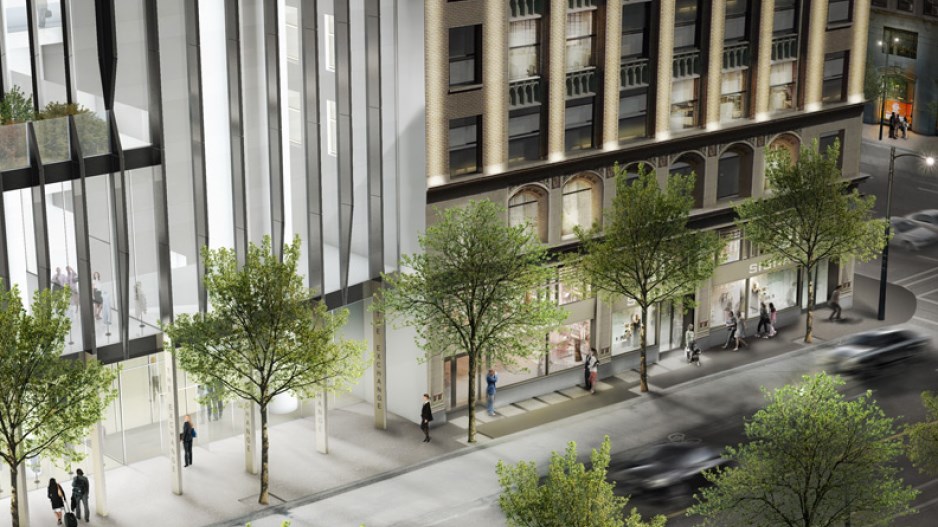As Vancouver Mayor Gregor Robertson welcomed a new $200 million office tower start in downtown Vancouver last week, industry observers questioned whether municipal incentives are encouraging a glut of office space.
The City of Vancouver, in an effort to encourage working space rather than just condominiums in the core, has been offering developers incentives to build offices in the downtown since 2005. For instance, office developers are not required to provide community amenities, which are demanded of residential developers and can include social housing units, daycare spaces or other costs, in exchange for higher density.
Since the Metro Core Jobs and Economic Land Use plan was launched, six new office towers are now under construction with a total of 2.8 million square feet.
The most recent start was by Switzerland-based Credit Suisse, which has broken ground on the 31-storey, 369,000-square foot, $200 million tower on Howe Street. Under Vancouver's Core Jobs plan, Credit Suisse was allowed density more than two times higher than the original floor-to-space-ratio (FSR) zoning on the Howe Street site. The FSR went from 9FSR to 21.5 FSR.
"The City is encouraging much more office development than would be taking place under normal market conditions," said Brady Fleguel a principal with property appraisers Burgess, Cawley, Sullivan Associates Ltd, who believes only one new tower would have started without them. "The incentives represent a massive increase in density."
The Exchange does not have an anchor tenant and starts construction as the Metro Vancouver office vacancy rate, at 8.5%, is at the highest level since 2009. In 2013, the downtown experienced 380,000 square feet of negative absorption, because of sublease space being shoved back onto the market.
Rainer Sherway, director at Credit Suisse Real Estate Asset Management, noted that the Exchange building is a departure for the global real estate company.
"Normally, we would invest in a fully developed, leased property," he said. "This office tower represents the first time in North America that we are confident enough to build a major project from the ground up."
Both Credit Suisse and CBRE, which is handling office leasing at the Exchange, expressed confidence that the entire tower would lease up. "We are negotiating with a number of tenants at the moment and expect to make announcements soon," said Mark Renzoni, president and CEO of CBRE.
Jeff Rank, a partner with Bentall Kennedy (Canada), however, said municipal incentives could have distorted an already competitive market by bringing new office space to market faster than required.
He pointed to Vancouver's Marine Gateway, where 247,417 square feet of office space was key to its approval, while the Solo District in Burnaby hinged on inclusion of a 230,000-square-foot office tower.
"We are a much better market ... building when there's tenant demand," Rank said.
Based strictly on the economics of developing office space, Fleguel said, "I think that only one of the six towers under construction would have started without favourable rezoning.




